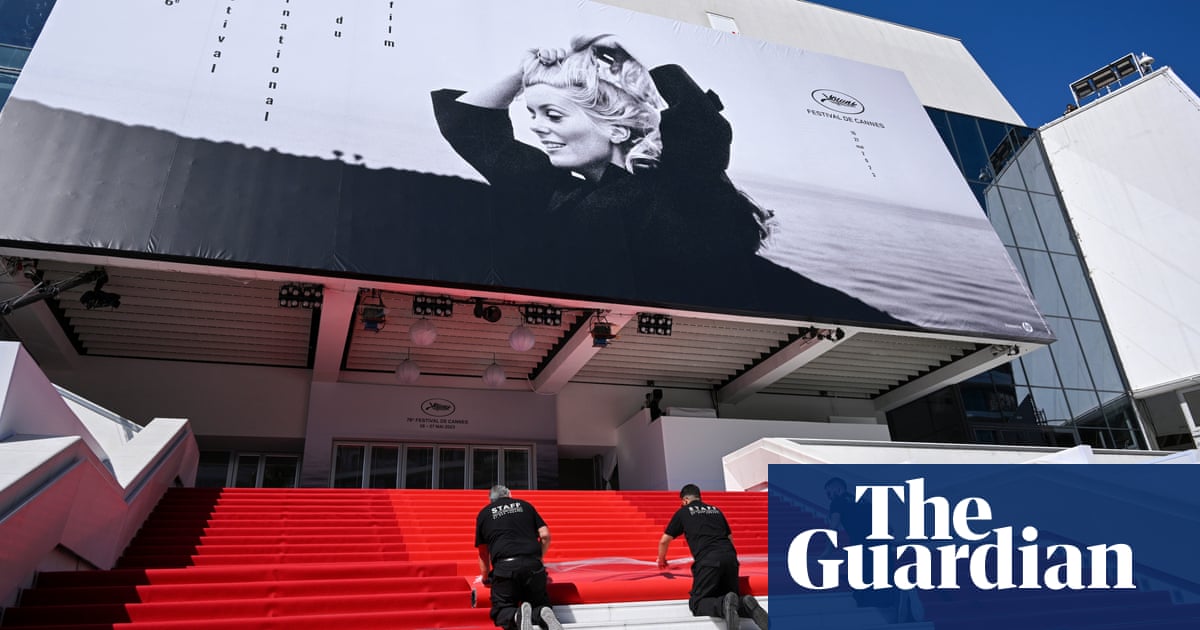
The Cannes film festival is facing strike action as it opens next week and could see protests by projectionists, floor managers and press agents who are demanding changes to the French government’s treatment of seasonal film festival staff.
The festival on France’s Côte d’Azur has faced major strike action only once before, during the student protests and workers’ strikes that began in May 1968.
This year a collective called Sous les Écrans la Dèche (The Poverty Behind the Screens), which represents more than 200 workers, has called a strike over the government’s treatment of freelance workers at festivals across France. They include projectionists, programmers, box office staff, logistics managers, floor managers, drivers, decorators and press officers.
The collective said the government’s latest proposed changes to unemployment laws would make it impossible for many skilled film festival workers to get by. The workers are hired on short-term, seasonal contracts at film festivals across France. But they do not fall under France’s special unemployment insurance scheme for freelance performers, artists and technicians in the cultural sector. That scheme tops up salaries to a minimum wage, giving state support during periods of no work.
The collective said changes to the French unemployment system to be introduced at the start of July would leave seasonal film festival workers in an even harder position, with a higher threshold for claiming unemployment benefits.
A spokesperson for the collective said: “One after the other, we will have to give up our professions, which will jeopardise these film festivals who already say it is difficult to find staff.”
They added: “The strike will not put the Cannes opening at risk, but there could be disruption during the festival.”
The collective is demanding a meeting in the first week of the festival with key Cannes staff alongside representatives from the economy ministry. It wants a government commitment to draw up concrete plans for protecting festival workers.
The Cannes film festival said it acknowledged the “difficulties” faced by some staff and encouraged all parties to “come together around the bargaining table”.
Meanwhile, there are fears that as a new #MeToo movement in French cinema gathers pace, the festival could be affected if fresh revelations of sexual harassment are published by French media during the event.
Iris Knobloch, the Cannes president, told Paris Match that the festival was “extremely attentive” to the #MeToo movement and was “following the situation closely”. She said that if anyone involved in presenting a film at the festival was the target of allegations, “we would ensure the right decision was taken, case by case, in consultation with our governing body and the different parties involved”. But she said the film on show would also be taken into consideration as “the work is the real star”.
after newsletter promotion
Cannes will next week premiere a short film by the actor, writer and director Judith Godrèche entitled Moi Aussi, or Me Too, highlighting the stories of survivors of sexual violence.
Godrèche has become a leading voice in France’s #MeToo movement after accusing the directors Benoît Jacquot and Jacques Doillon of sexually assaulting her while she was a teenager. Both men have denied the allegations. Prosecutors have opened an inquiry.
Godrèche has spoken at this year’s French film awards, the Césars, and in parliament urging an end to sexual abuse in what she described as an “incestuous” French film industry.
Gérard Depardieu, one of France’s best-known actors, will face a criminal trial in October over the alleged sexual assaults of two women on the set of a film in 2021. He is also under formal investigation in another case after the actor Charlotte Arnould alleged he raped her at his Paris home in 2018. He has denied all allegations.
Source: theguardian.com





















